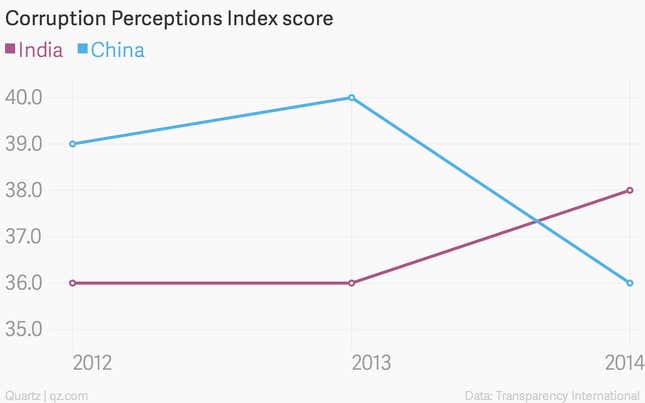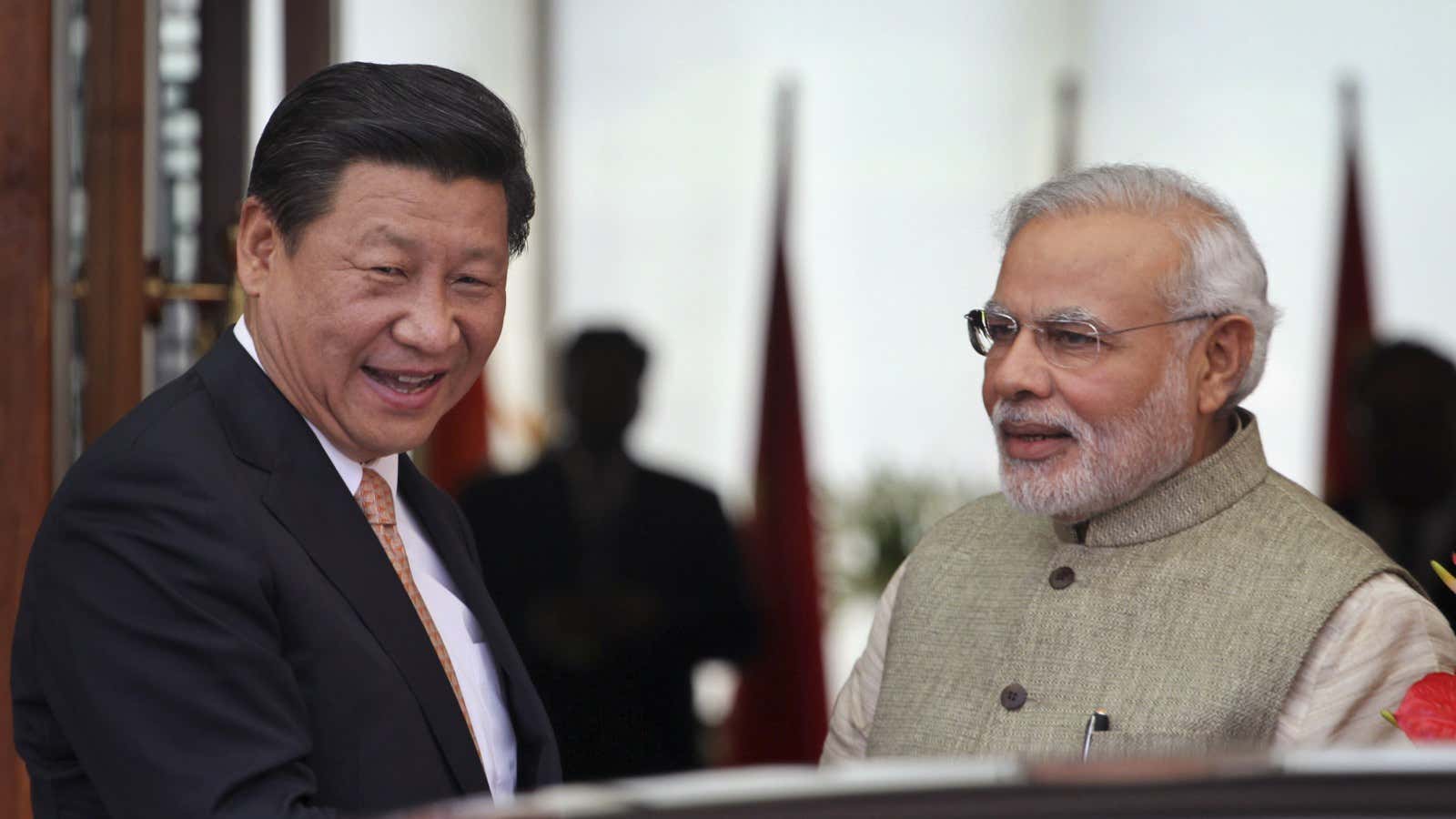Much has been written about India emerging as a less corrupt country in this year’s Corruption Perceptions Index. While India ranked 85th out of 175 countries, moving up 10 places from 2013, China plummeted 20 places to the 100th rank.
But, actually, the performance isn’t anything to brag about—India is still almost as corrupt as it was last year.
The ranking isn’t an absolute value on the index. “A country’s rank indicates its position relative to the other countries included in the index,” Berlin-based Transparency International, a global corruption watchdog, pointed out.
Instead, the actual parameter is the Corruption Perceptions Index score, which is an average of raw scores from different data sources.
This year, India’s score is 38, while China’s is 36. So India fares only slightly better than its neighbour. In 2012 and 2013, India’s scores was 36.
The poor scores are attributed to widespread bribery, lack of punishment for corruption and public institutions that don’t respond to citizens’ needs. Transparency International’s Srirak Plipat said the low scores are “a resounding message to leaders that, despite many public declarations and commitments, not enough is being done to fight corruption.”
Since the index measures corruption in the public sector, which in turn is accountable to the government, Plipat questioned the leadership of the two economies. “For China and India, two countries where new leadership are pursuing anti-corruption drives, the index is a harsh reality check,” wrote Plipat, a regional director at Transparency International.

India gained little ground on the back of the anti-graft bill that was passed last year. However, the watchdog said questions about Indians stashing black money in bank accounts in Mauritius continued to loom large.
Other reasons for India’s poor performance include the inadequacy of structures of accountability and transparency, weak law enforcement, and lack of protection of whistleblowers.
China
On the other hand, China’s score dropped four points from 40 in 2013 to 36 in 2014—despite the Beijing’s concerted efforts to check corruption. “The recent prosecutions in China are largely seen as efforts to clamp down on political opponents of the regime as opposed to genuine anti-corruption commitments,” explained Plipat in his blogpost.
Transparency International added that the drop in China’s score was also partly a result of leaked documents that “revealed 22,000 offshore clients from China and Hong Kong, including many of the country’s leaders.” Besides, one of the sources, Political and Economic Risk Consultancy, used in evaluating China’s score, cited distrust due to the inept handing of the Hong Kong demonstration.
A Chinese spokeswoman dismissed the findings by Transparency International and said there was a need to “conscientiously examine the objectiveness and fairness of the index.”
The survey found Denmark, New Zealand and Finland were the three least corrupt countries in the world, while Somalia, North Korea and Sudan were ranked as the most corrupt.
